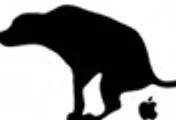EEF(Electonic Frontier Foundation)는 2011년 연말 리뷰 "특허가 혁신의 숨통을 죄고 있다"를 발표하였다.
그 전문을 여기에 소개한다.
이 리뷰는 특히 2011년에 유달리 악명높은 특허괴물들이 득세한 것을 지적한다.
이들 특허괴물은 제품을 만들지도 팔지도 않으면서 응용 개발자들을 타겟으로 하여 소송 협박을 하거나 침해 소송을 건다.
이들 특허괴물의 활동으로 인해 개발자들은 미국 시장에서 문제되는 응용기술들을 적용하는 데 소극적일 수밖에 없게 될 것이고, 그 손해는 유저와 미국 경제가 지게 될 것이라는 점이다.
'특허 대상'에 대한 논의도 지적한다.
Bilski 판결 이후에 '특허 대상'에 대한 판결에 혼선이 빚어지고 그 판단 기준이 더욱 모호졌다고 한다.
이들은 특허 대상을 판단하는 기준이 좀더 명료하고 설득력이 있기를 원한다.
(Bilski케이스 리뷰 참조 : http://www.dotomari.com/195)
이들이 마지막으로 지적하는 것은 '공동 침해'의 문제이다.
특허 침해의 책임이 제3의 유저, 고객, 개발자에게까지 부과되는 것을 제한하여야 한다고 주장하고, 이 주장을 연방순회법원과 대법원 등에 요청하였다고 한다.
2011 in Review: Patents Misused to Stifle Innovation
As the year draws to a close, EFF is looking back at the major trends influencing digital rights in 2011 and discussing where we are in the fight for a free expression, innovation, fair use, and privacy.
2011 saw what many had written off as impossible: patent reform legislation became law. Despite the urgent need for reform to today’s patent system, the new law – the America Invents Act – managed to do almost nothing to address many of the most pressing problems facing innovators. To be sure, the law included some big changes – the shift from “first-to-invent” to “first-to-file” and alterations to the PTO’s funding and fee-setting authority – but it failed to create robust new procedures for effectively challenging bad patents. It also failed to address one of the biggest problems with the patent system today: predatory patent trolls. (We were at least encouraged to see that the bill’s language did signal that at least some in Congress are generally unhappy with business method patents.)
Speaking of patent trolls, 2011 also brought us a new, especially egregious, type of patent troll. Lodsys LLC, a company who makes and sells nothing, targeted app developers with threats of litigation (and, in some instances, actual lawsuits), claiming infringement based on in-app purchasing and upgrade technologies. The problem, of course, is that the cell phone operating system companies such as Apple and Google provide these technologies to the developers yet fail to defend those developers when they’re hit with a lawsuit. Apple has moved to intervene in ongoing Lodsys litigation, and Google has filed a reexamination of the patents at the PTO; we’ll continue to monitor those actions. But, in the meantime, it’s no wonder that app developers are removing their apps from U.S. markets, to the detriment of users and the economy at large.
The courts, too, were busier than ever on the patent front. The struggle to define “patentable subject” matter in the wake of Bilski continued apace. The Federal Circuit in the second half of this year issued three separate rulings on the limits of abstract subject matter and has managed to further confuse (who knew that was even possible?) the matter. We’ll continue to monitor cases going on across the country for chances to weigh in and urge courts that patents that are too abstract are bad news for innovation. We'll push courts to construct standards surrounding patentable subject matter, and other requirements of patentability (for example, the written description requirement), that make sense.
EFF also weighed in on matters related to joint infringement, urging the Federal Circuit to uphold a rule limiting liability of third-party users, consumers, and developers. EFF also filed a brief at the Supreme Court arguing for a lower standard of review for invalidating bad patents (a case where we believe the Court came out wrong). We also watched the “breast cancer gene” case work its way through the Federal Circuit, and will continue to closely monitor a case that is likely to land in front of the Supremes next year. The Supreme Court hasn’t shied away from addressing patent issues lately, and we’ll continue to do our best to help courts at all levels navigate these cases in a way that protects innovation and consumers.
출처 :
2011 in Review: Patents Misused to Stifle Innovation
'지적재산권보호 > 글로벌' 카테고리의 다른 글
| [글로벌] 모바일기기의 인터넷 마켓셰어 _ 120101 (0) | 2012.01.03 |
|---|---|
| [글로벌] 코오롱, 직원 한 명 잘못 채용으로 절대절명의 위기. 듀퐁과의 영업비밀 침해 소송 (0) | 2012.01.02 |
| [글로벌] 일본은 왜 잡스에 패했는가? (0) | 2012.01.01 |
| [글로벌] 애플이 악마와 거래를? (0) | 2011.12.10 |
| [글로벌] 삼성과 애플의 특허전쟁 현황 _ 111210 (0) | 2011.12.10 |

